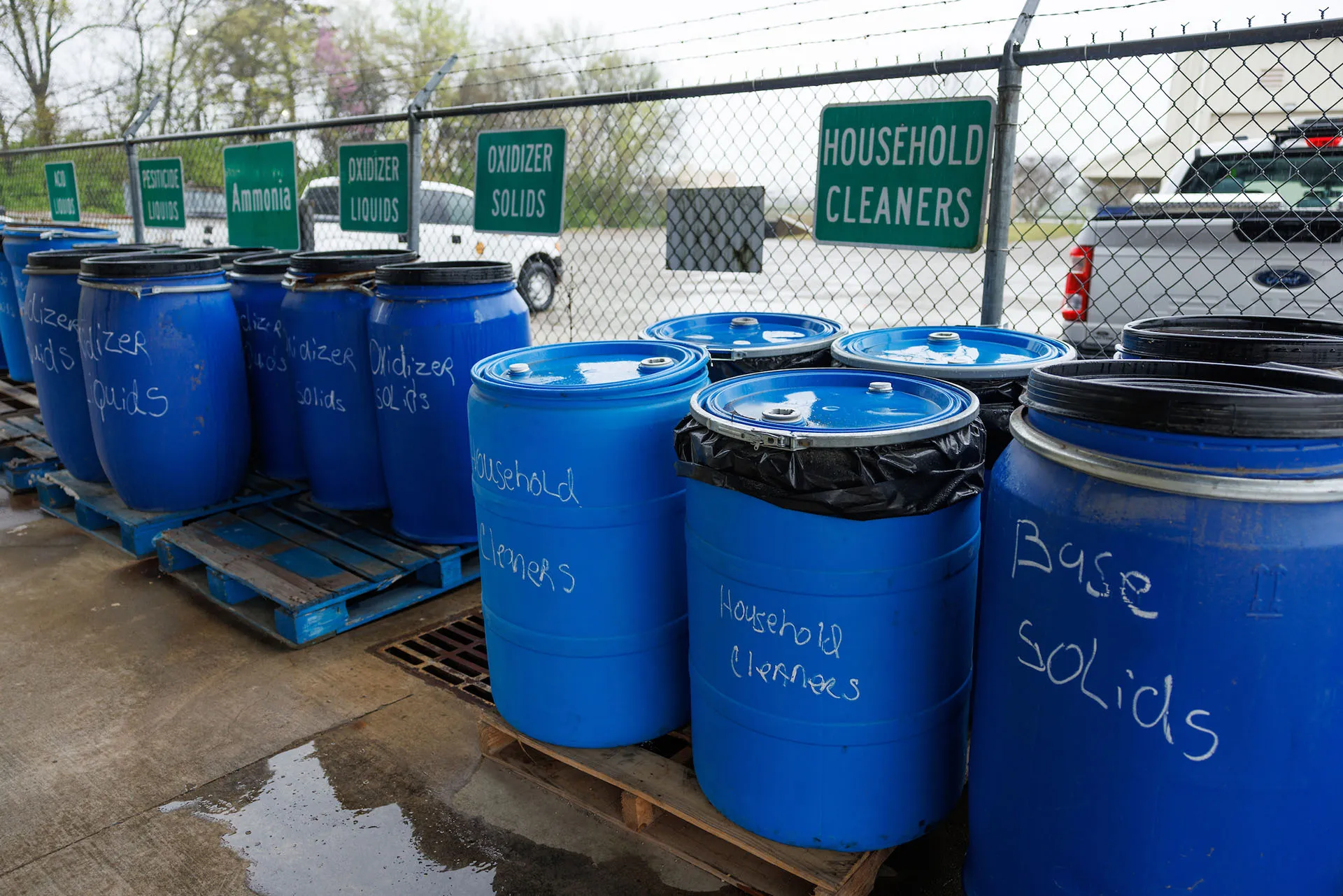Commercial household cleaning solutions are among the most common household hazardous waste (HHW) materials. While they can be helpful for keeping your home clean, if thrown into the garbage with other waste, they eventually make their way to a landfill. There, they can seep into groundwater, polluting rivers and streams, harming aquatic wildlife and adversely affecting our drinking water.
To help keep HHW out of landfills, you can try replacing common commercial cleaners with some DIY solutions that are more environmentally friendly.
Ink or paint stains: Soak in rubbing alcohol for 30 minutes or spray hair spray on the stain and rinse.
Grass stains: Scrub with liquid dish soap or treat with a 50/50 mix of hydrogen peroxide and water.
Tea or coffee stains: Immediately pour boiling water over the stain until it is gone. If already set, scrub with a paste of Borax and water and immediately wash.
Tomato-based stains: Treat with white vinegar directly on the stain and immediately wash.
Grease and oil stains: Sprinkle with dry baking soda to remove loose oil or grease and brush off. Then, soak in white vinegar for 15 minutes, rinse and scrub with liquid dish soap, then wash.
Pet stains: Soak in cool water, then wash in cool water with ½ cup of hydrogen peroxide and ½ cup of baking soda.
Wine or red dyes: Soak in a 50/50 mix of hydrogen peroxide and water.
Common clothing stains: Soak stain directly in 50/50 mix of hydrogen peroxide and water for 30 minutes, then add 1 cup of hydrogen peroxide to wash water.
Lime deposits: Soak paper towels in vinegar and leave on deposits for one hour. Soak shower heads in vinegar. Squeeze lemon juice onto bathroom fixtures and let sit for several minutes before wiping with a wet cloth.
Garbage disposal deodorizer: Cut up oranges or lemons, put in disposal, turn it on and rinse.
Marks on walls or painted surfaces: Many ink spots, crayon or marker spots can be cleaned using baking soda applied to a damp sponge. Rub gently, then wipe and rinse.
Mold and mildew: Use white vinegar or lemon juice. Apply with a sponge or scrubby and let sit for 30 minutes.
Rust remover: Sprinkle a little salt on the rust, then squeeze a lime over the salt until it is well soaked. Leave for 2-3 hours. Use leftover rind to scrub residue.
Stickers on walls: Sponge vinegar over the sticker several times, then wait 15 minutes and rub off the stickers.
Cutting boards: Cut a lemon in half, run it over the surface, let it sit for ten minutes, then rinse. If you need to scrub, sprinkle coarse or kosher salt and rub with half of a lemon.
Microwaves: Pour vinegar into a small cup and mix in lemon juice. Put the cup in the microwave, let the microwave run for 2 minutes, then leave the door closed for several minutes. Wipe down interior with a warm cloth or sponge.
Windows and mirrors: Combine 1 part white vinegar with 4 parts water and use a sponge or rag to scrub.
Refrigerator cleaner: Add ½ cup of baking soda to a bucket of hot water. Dip a clean rag in the mixture and use it to wipe down the fridge.
Grill cleaner: Ball up aluminum foil and use it to scrub clean a dirty grill.
Can opener blades: Clean with an old toothbrush soaked with full strength vinegar.
If you need to dispose of HHW such as pesticides, cleaning products, paint thinner or automotive fluids, you may do so at one of the Tennessee Department of Environment & Conservation’s mobile collection centers or permanent collection sites in Knox, Hamilton, Davidson, Putnam and Shelby Counties.
A schedule for mobile collection is available at here. Learn more on TDEC’s website.
